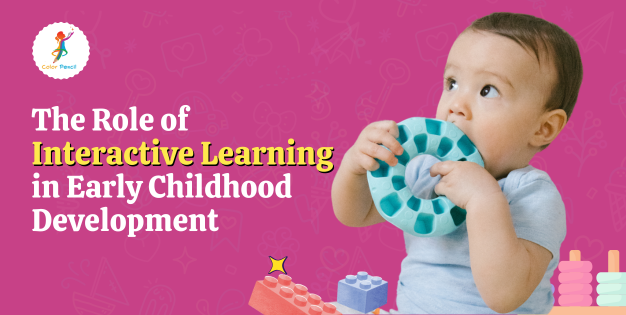
Holi Festival for Kids: Safety Tips Every Parent Should Know
The Holi Festival for Kids is pure magic—imagine your little ones giggling, their cheeks streaked with colors, and the air filled with laughter. But for

Early childhood is a time full of big questions, curious discoveries, and plenty of “Why?” moments. But did you know that this is also one of the most important stages for building the foundation for your child’s lifelong learning journey? One of the best ways to encourage this growth is through interactive learning for kids. By blending fun, hands-on activities with technology that sparks curiosity, interactive learning can transform ordinary moments into powerful learning opportunities.
From educational apps that teach letters to interactive games for toddlers that boost problem-solving skills, the goal is simple: make learning engaging and enjoyable. Let’s dive into why interactive learning is such a game-changer for early childhood development and how tools like Play pixo are helping kids learn through play.

It’s no secret that kids learn best when they’re actively involved, not just sitting still listening to instructions. Interactive learning taps into your child’s natural sense of wonder by encouraging them to explore, experiment, and discover. This hands-on approach helps build a deeper connection to what they’re learning.
Here’s why interactive learning works so well for early childhood development:
With more and more learning moving away from traditional methods and embracing play-based learning, interactive activities are at the forefront of shaping young minds.

There are so many ways to encourage interactive learning, from physical toys to digital apps. The right tools can make learning fun, personalized, and effective, helping your child grow at their own pace.
Here are some of the best interactive learning tools that will spark your child’s imagination and creativity:
These tools combine the best of both worlds—technology and play—creating a balanced and effective learning environment for young children.

When it comes to combining education and play, Play pixo takes interactive learning to new heights. Designed for young learners, Play pixo offers a mix of educational games and activities that are both fun and skill-building.
It’s an immersive learning experience that encourages active participation and helps children develop important skills, all while keeping them engaged and entertained.
Here’s how Play pixo fits into the interactive learning picture:
The impact of interactive learning goes far beyond the preschool years. When children engage in hands-on, problem-solving activities from an early age, they develop the skills needed for success in school and in life.
Here’s how interactive learning benefits kids in the long run:
By encouraging your child to engage in interactive learning, you’re laying the groundwork for a lifetime of curiosity, confidence, and growth.

Interactive learning helps children develop cognitive, motor, and social skills by involving them in sensory-rich activities that promote curiosity, creativity, and problem-solving.
Great tools include educational apps, interactive toys, and hands-on play activities like building blocks or sensory play stations. These tools provide engaging, personalized learning experiences.
Yes! Interactive learning often involves group play and collaborative tasks, teaching toddlers valuable social skills such as communication, sharing, and teamwork.
Interactive learning builds critical thinking, problem-solving, and emotional intelligence. These skills prepare children for academic success and provide a strong foundation for life.
Interactive learning is more than just a trend—it’s a vital tool for helping young children develop the skills they need to thrive. Whether through interactive games for toddlers, educational apps, or hands-on play activities, this approach makes learning exciting and effective. With apps like Play pixo, you can give your child the best of both worlds: fun and education.
Ready to make learning an adventure for your child? Dive into the world of interactive learning and watch them grow into curious, confident, and creative individuals.
1 Comment